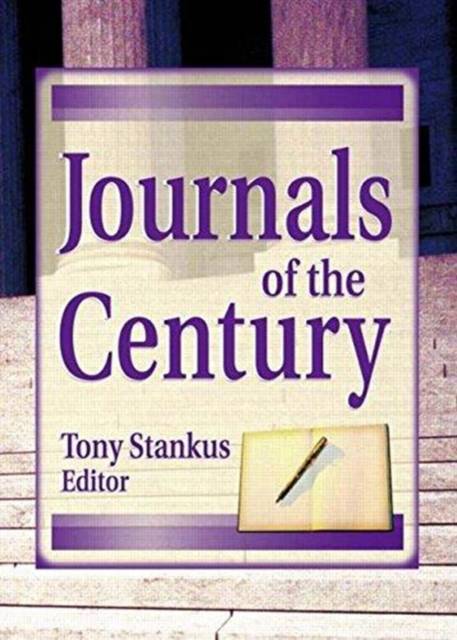
- Retrait gratuit dans votre magasin Club
- 7.000.000 titres dans notre catalogue
- Payer en toute sécurité
- Toujours un magasin près de chez vous
- Retrait gratuit dans votre magasin Club
- 7.000.0000 titres dans notre catalogue
- Payer en toute sécurité
- Toujours un magasin près de chez vous
Description
Get the experts' perspective on the top journals of the 20th century!
The Journals of the Century project gathered some of America's top subject expert librarians to determine the most influential journals in their respective fields. Thirty-two contributing authors--led by Editor Tony Stankus--reviewed journals from over 20 countries that have successfully shaped the evolution of their individual specialties worldwide. Their choices reflect the history of each discipline or profession, taking into account rivalries between universities, professional societies, for-profit and not-for-profit publishers, and even nation-states and international ideologies, in each journal's quest for reputational dominance. Each journal was judged using criteria such as longevity of publication, foresight in carving out its niche, ability to attract & sustain professional or academic affiliations, opinion leadership or agenda-setting power, and ongoing criticality to the study or practice of their field. Journals of the Century presents wholly independent reviewers; none are in the employ of any publisher, but each is fully credentialed and well published, and many are award-winners. The authors guide college and professional school librarians on limited budgets via an exposition of their analytical and critical winnowing process in determining the classic resources for their faculty, students, and working professional clientele. The chapters are logically grouped together in six clusters that reflect the commonly shared interests of library liaisons and the range of like-minded academic departments they typically serve. These clusters include:- The Helping Professionals (chapters on social work, education, psychology, sociology, and library and information sciences)
- Music, Museums, and Methodists (chapters on visual arts, anthropology, archaeology, philosophy, and the American religious experience)
- Business and Law (chapters on business and economics, plus legal literature)
- War and Peace (chapters on modern history, political science and international relations, and military affairs)
- Physical Sciences and Engineering (chapters on mathematics and the physical sciences as well as engineering and computer science)
- Life, Health, and Agriculture (chapters on medicine and surgery, pharmacy, physical therapy and nutrition, agriculture, and veterinary medicine)
Journals of the Century answers questions such as:
- Which university press leads in high-ranking titles in the helping professions?
- In what crime-fighting journal, ironically mentioned within the Music, Museums, and Methodists cluster, do anthropologists routinely publish?
- What two journals cover the biggest yearly expense of most working Americans and rankly highly within both chapters of the Business and Law cluster?
- What family of British publications has remained indispensable reading for political and military readers for over a century in the War and Peace Cluster?
- What society in the Physical Sciences and Engineering cluster publishes more journals than any other publisher in this book, covering topics from light bulbs and computers to MRIs and windmills?
- What one-word-titled journal has joined the venerable pair of Nature and Science as the most important reporters of world-class breakthroughs in basic biomedical science?
- and many, many more!
Journals of the Century includes extensive commentaries on each cluster by the editor, with graphical representations by world regions and publishing sectors contributing to each chapter. ISSN numbers for print editions, and URL addresses for online editions are provided in a comprehensive title index. This unique book is an essential resource for serials librarians in academia, new reference librarians familiarizing themselves with classic titles, and collection evaluators and college accreditation examiners.
Spécifications
Parties prenantes
- Auteur(s) :
- Editeur:
Contenu
- Nombre de pages :
- 512
- Langue:
- Anglais
Caractéristiques
- EAN:
- 9780789011343
- Date de parution :
- 01-05-02
- Format:
- Livre broché
- Format numérique:
- Trade paperback (VS)
- Dimensions :
- 148 mm x 210 mm
- Poids :
- 942 g

Les avis
Nous publions uniquement les avis qui respectent les conditions requises. Consultez nos conditions pour les avis.






